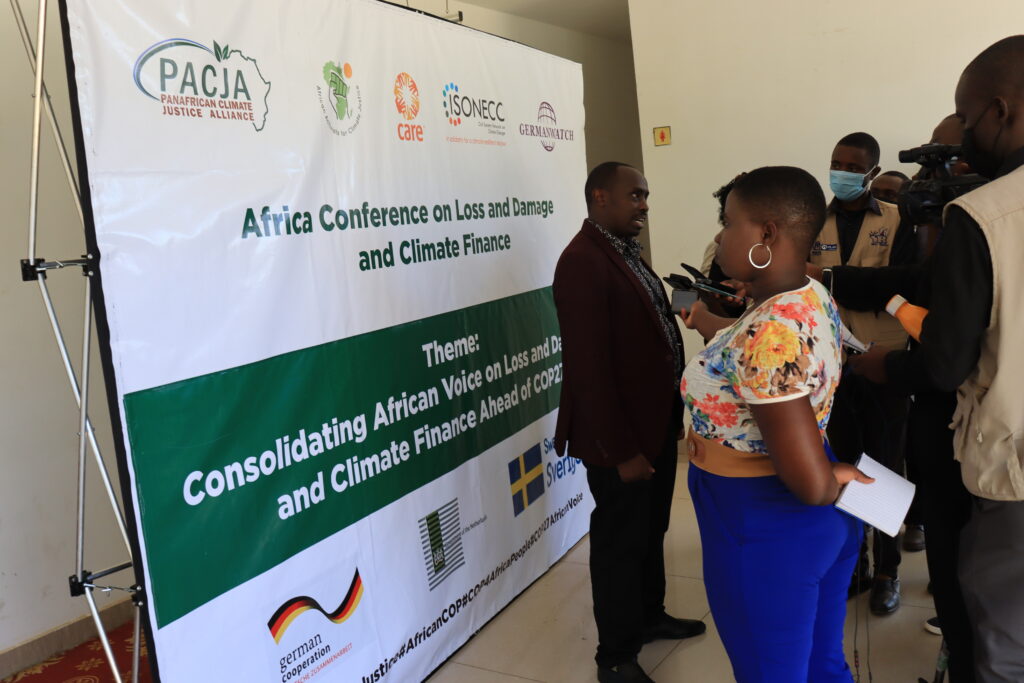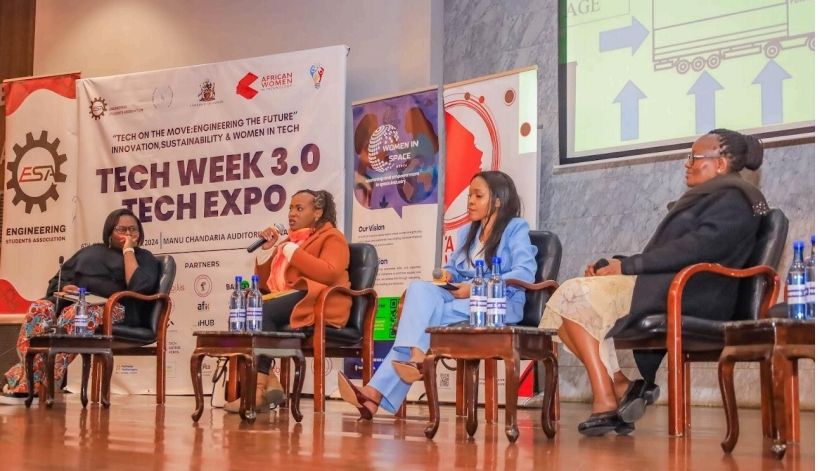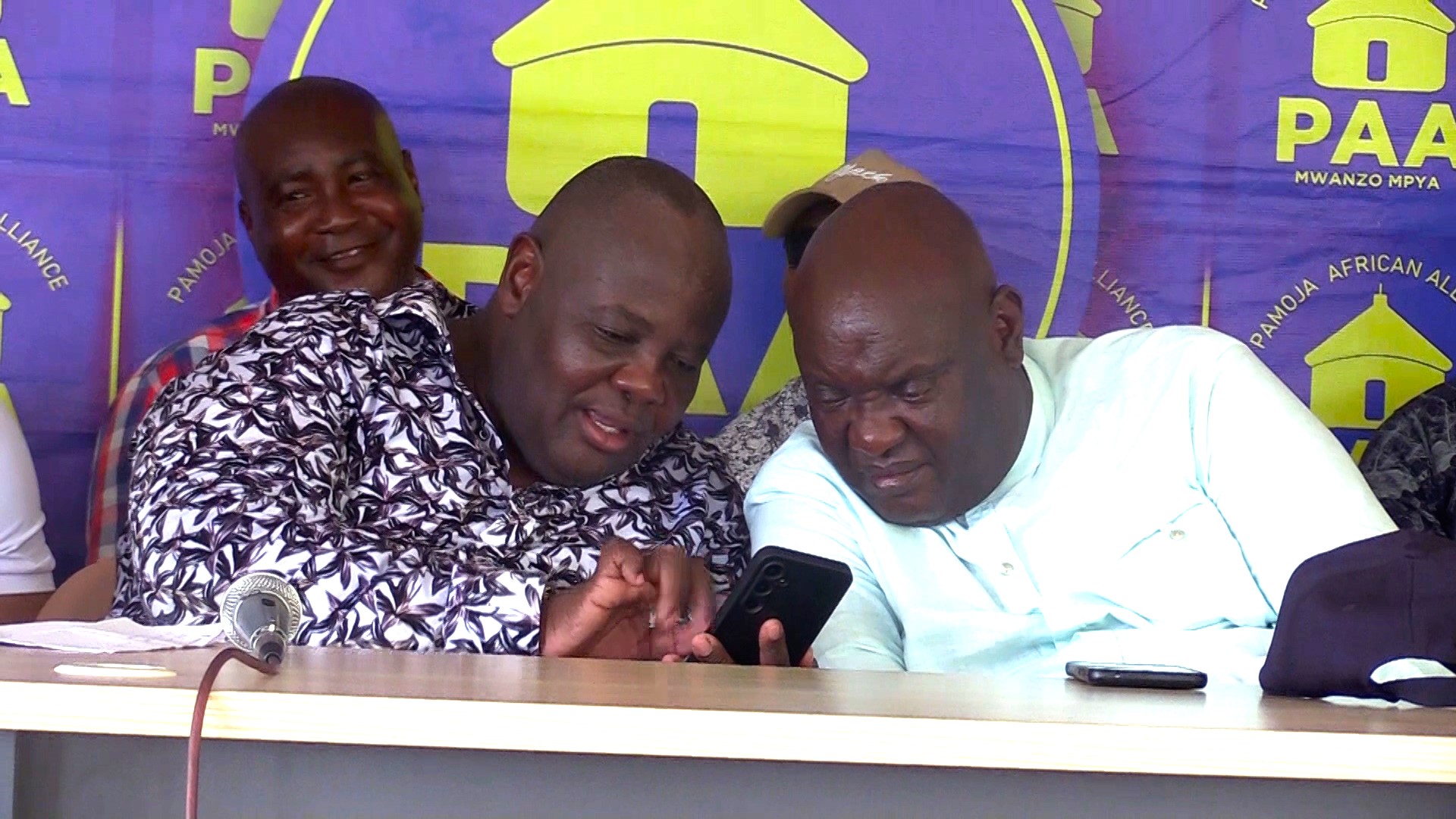PACJA denounces plot to slice loss, damage from Egypt COP27 climate change agenda

By Rosemary Munala
African Civil Society groups in Bonn, Germany have denounced a decision at the ongoing 56th sessions of the Subsidiary Body for Implementation (SBI) and Subsidiary Body for Scientific and Technological Advice (SBSTA) terming the decision as risking climate change discussions into mere rhetoric.
The SBI is the body that considers the biennial work programmes for the secretariat, which provide the strategic direction on how the UN Framework Convention on Climate Change (UNFCCC) Secretariat can best serve the Parties and the UNFCCC process towards greater ambition of climate change action and support that is fully commensurate with the objectives of the Convention, the Kyoto Protocol and the Paris Agreement.
At a meeting held earlier today, an SBI Session decided to exclude loss and damage from the 27th Conference of Parties to the UN Framework Convention on Climate change (COP27) set for Egypt later in the year. African CSOs want to hear none of it!
“As CSOs from Africa, we demand that as a basic minimum, loss and damage financing must be the priority agenda in COP 27 with clear and urgent timelines on addressing the issue, which is already ravaging African livelihoods,” Charles Mwangi, the Acting Executive Director of the Pan African Climate Justice Alliance said in a statement issued to the Press in Bonn.
The Alliance called for a commitment from the Parties in following the direction already set by the Scottish government at COP27 in financing loss and damage.
“The impact of climate crisis has human faces and all must see it that way, because that is what it is. This is why we, as PACJA, are deeply concerned by the turn of events here in Bonn where loss and damage agenda, just like the global goal on adaptation, has been reduced into empty rhetoric,” he said.
Recalling living experiences from a conference PACJA had organized in Malawi in April, Mwangi said, “for Africa loss and damage is an immutable reality”.
At the conference, rural women with lived experiences and survivors from the devastation Cyclone Idai that hit Mozambique, South Africa, Malawi shed tears as they narrated the damages and losses their families incurred.
Eluby Nota of Balaka, Malawi for example had enough time to reach her mother’s flooded home, but her efforts to carry her to safety were not successful as the force of raging floods literally whisked her from Nota’s shoulders.
Mamadi Imani, from Palma District, Cabo Delgado Province in Mozambique lost three brothers in one night who were swept into the ocean while on duty fishing in the Indian Ocean. A house she had built from her gratuity of years of service as a teacher got reduced to rubbles.
At COP26 that held last year at Glasgow, UK, the Group of 77 nations and China put a spirited fight for the establishment of a mechanism for financing loss and damage. This proposal was blocked by developed countries, who instead opted for the establishment of the Glasgow Dialogue as a compromise.
This paved the way for Parties, relevant organizations and stakeholders to discuss the arrangements of funding activities that could avert, minimize and or address loss and damage associated with the adverse impacts of climate change.
At Bonn, initial statements issued by the chair of SBI, UNFCCC Executive secretary and the representative of the executive committee on Warsaw International Mechanism on loss and damage (WIM) weighed heavily on the need for openness, pragmatism and practical solutions to the loss and damage agenda.
Patricia Espinosa, the executive secretary to UNFCCC reiterated the need to focus more on the communities who are most vulnerable to climate change.
This is the position that PACJA has always communicated.
“Every decimal degree in temperature rise is important to this process”, said Reinhardt Meckler- a researcher with the Inter-governmental panel on climate change. Reinhardt indicated that at 1.1 degree of temperature rise, climate change has already caused serious damages to ecosystems and livelihoods, in fact nearly 50% of the world’s population is staring at the challenge of water scarcity,” said the SBI Chair.
The IPCC expert further indicated that the excessive death rate from non-optimal temperatures in sub-Saharan Africa is estimated to be nearly double the global average.
According to Mwangi, this validates the opinion held by PACJA that the African Continent is a region which suffers most to climate change impacts despite its meagre contribution to global greenhouse gas emissions of 4%;
This fact has formed the basis for the clarion call by PACJA for consideration of Africa as a region with special needs and circumstances.
“Besides the economic losses emanating from climate change, the unquantifiable non-economic losses for Africa are massive,” said Mwangi adding that these range from destruction of fragile ecosystems, loss of cultural heritage, among others.





